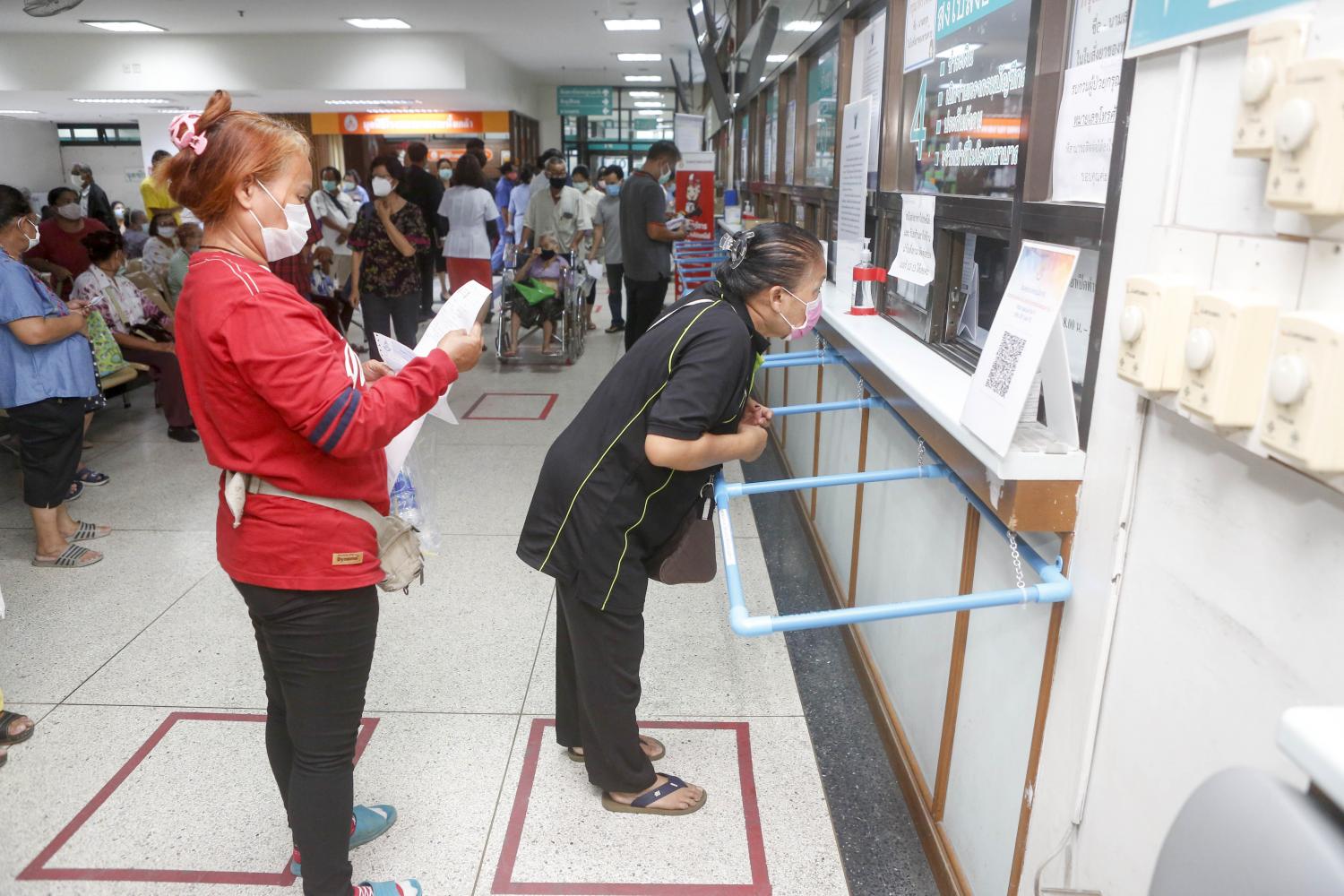
The National Health Security Office (NHSO) has missed its target to invite at least 500 clinics to join the universal healthcare scheme this month after it terminated contracts with 190 affiliated medical clinics and hospitals.
The contract termination came after the affiliated medical facilities falsified financial claims to provide medical health check-ups to patients that never took place.
After the termination in September, two million people who had been registered with the clinics and hospitals would see their status "vacant".
Despite the NHSO and the Public Health Ministry assisting affected patients by allowing them to go to other primary healthcare clinics in their designated constituency, the case underlines the problem of universal health care policy in Bangkok.
CHALLENGE
NHSO board committee member Nimit Tienudom said the underlining problem was that the NHSO and the ministry cannot get enough affiliated hospitals to cater to the 3.7 million people who carry universal healthcare insurance cards.
The termination of 190 affiliated medical clinics and hospitals substantially reduced the number of medical facilities catering to people.
The scenario is different in provincial areas where "anamai", or state healthcare units, are located in communities.
The ministry subsequently upgraded these anamai stations into community hospitals to serve users of universal healthcare cards.
But the case of Bangkok is different. There are fewer state hospitals and the majority of small medical clinics in communities are privately owned.
After the case of corruption in 190 medical clinics, Mr Nimit said he is worried that it might be difficult for the NHSO to find private clinics and hospitals to join the universal healthcare policy.
"It is harder to invite those clinics because private operators might not be certain about the benefits," he said.
According to Mr Nimit, the NHSO's payment policy is problematic.
Previously, the NHSO had made contracts with affiliated clinics and hospitals to pay money in lump-sum capitation.
In the past few years, however, the NHSO revised the payment terms into payment-per-visit, which is deemed as providing less financial benefit and drove unscrupulous clinics and hospitals to falsify patient numbers.
Only 113 clinics accepted the invitation to join the scheme, according to NHSO deputy secretary-general Jadej Thammatacharee.
Dr Jadej admitted that financial issues were the main problem that forced several clinics to confront difficult decisions.
He assured that two million healthcare carder holders in Bangkok will not be affected as they are permitted to use other affiliated clinics in their constituencies.
He said 300,000 out of two million people who are considered serious patients can go to other state hospitals without any problem.
The NHSO and the Ministry of Public Health launched the upgraded universal healthcare policy on Nov 1.
"Under the new system, people will find it more convenient," Dr Jadej said.
"They can select the best that is close to their homes. We have divided our service into six zones and hope to have at least 100 clinics and seven hospitals to join us in each zone.
"We are going to work on this."
Dr Jadej added the new policy would cover all 3.7 million universal healthcare cardholders in Bangkok.
The upgraded policy, dubbed "One Access All", has been applied to cancer patients, which will be able to request to be treated at other hospitals other than the clinic they were initially registered at starting at Jan 1.
1 HOSPITAL, 1 CONSTITUENCY
Mr Nimit said the sustainable solution for Bangkok is to have one state-run, community hospital in every constituency.
As such, he called on the government to invest more on state-run healthcare units, especially in and around Bangkok. "The solution has been gradually implemented in other provinces to improve convenience for rural patients," he said.
In other provinces, many anamai stations have been upgraded into community hospitals, so they are now able to provide fundamental medical treatment to patients and transfer them to main referral hospitals, if they require.
"In the long run, we want to see one hospital in one constituency, to act as the major link between main hospitals and community clinics," Mr Nimit said.
He said that due to the system's limitations, Bangkok residents who are registered with the universal healthcare scheme tend to access medical services much less than their rural counterparts.
"Rural subscribers generally go for a check-up three times a year, compared to once a year for Bangkok subscribers," he said.
"They will utilise their subscription if there are more hospitals."